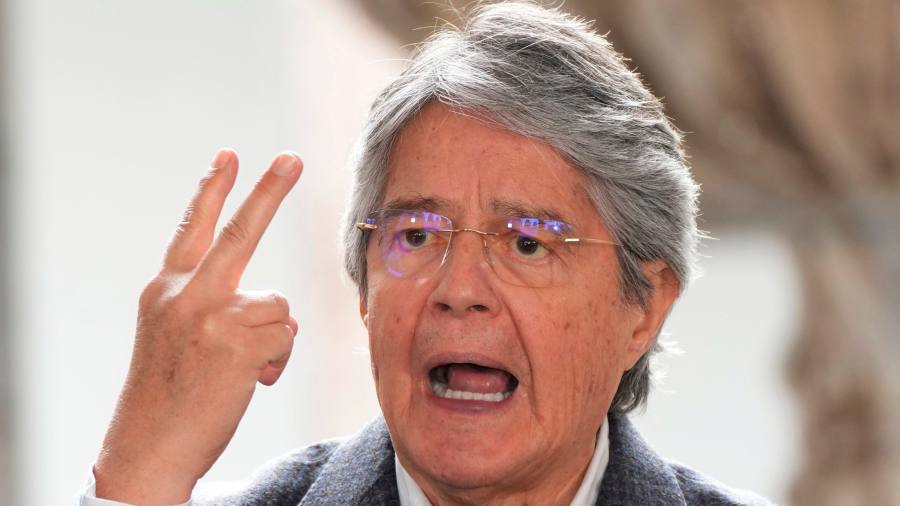Ecuador’s president, Guillermo Lasso, said on Friday he will not run in the snap election he triggered last month after facing impeachment charges.
“I will not accept the candidacy for the presidency of the republic in the elections on August 20,” Lasso said in a speech on Friday afternoon outside the Carondelet Palace in Quito, flanked by his family and cabinet.
Elections for president and congress are due to take place in August after Lasso activated the “mutual death” clause in the constitution, dissolving congress and triggering elections for president and congress.
The millionaire was facing trial on charges of embezzlement in the opposition-controlled congress. The charges related to contracts awarded to state-owned oil transport company Flopec in 2018, three years before he took office. Lasso repeatedly denied the charges and said they were politically motivated.
He had been due to face a trial in the National Assembly a few days after he shut it down.
“I didn’t do it to avoid a trial, but to stop this macabre plan of institutional usurpation that is still going on today,” Lasso said in his speech on Friday.
The turmoil appears to have affected investor confidence, with rating agency Fitch last week changing its outlook for Ecuador from stable to negative, citing political instability.
If no candidate for president wins more than 50 per cent of the vote in August, a run-off will take place on October 15.
Lasso will govern by decree, overseen by the constitutional court, until the new president is seated. In a video message later posted on Twitter, he said he would use the next few months to fulfil plans he had for the next two years.
Despite receiving plaudits for the country’s Covid-19 vaccination campaign and restructuring some of the its debt to China, Lasso’s centre-right administration was met with hostility in congress and was blighted by a rise in drug-fuelled crime that is set to dominate the campaign ahead.
Lasso was unlikely to fare well in a vote: his approval rating was just 13.9 per cent before he dissolved congress.
The new president and lawmakers will only serve the remainder of Lasso’s current term, until 2025, when another election will take place.
Sebastián Hurtado, head of the Quito political risk consultancy Prófitas, said that Lasso’s decision not to run cast his declaration of “mutual death” in a new light, given that he could have resigned and allowed his vice-president, Alfredo Borrero, to see out the term.
“I think that two years of a Borrero lame duck government was preferable to the disruption and instability that two years of continuous elections are going to bring to Ecuador with all the economic impact that it is going to have.”
Read the full article here




